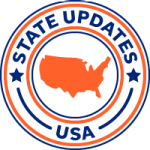
Policy Matters Brief January 14, 2021
California workers’ comp drug formulary updated
The California Division of Workers’ Compensation (DWC) issued an order updating their Medical Treatment Utilization Schedule (MTUS) Drug List (drug formulary) effective February 1, 2021. The order adopts changes to the drug formulary based on the American College of Occupational and Environmental Medicine Practice Guidelines, including:
- New drug recommendations addressed in the Antiemetics Guideline
- Updated Guideline references for desvenlafaxine succinate
The existing rules permit DWC to make formulary updates on a quarterly or more frequent basis. More information on this latest update (version 8) can be viewed here.
Michigan DIFS adopts auto no-fault UR rules and starts fee schedule rules
To implement certain provisions of 2019 auto no-fault reform legislation, the Michigan Department of Insurance and Financial Services (DIFS) filed final adopted rules to govern utilization review (UR). The text of the new UR rules took effect December 18, 2020, but auto insurers have until to February 16, 2021 to ensure their UR programs are compliant.
DIFS' new UR program initial certification application must be submitted by auto insurers to DIFS for review and approval. Additionally, insurers will be required to submit an annual UR report starting in 2022.
Information webpage available
DIFS has created an auto UR information page outlining certain timeframes and providing links to the various provider and insurer forms.
Requirements of an insurer’s UR program include:
- Review of whether provider charges comply with requirements under the law
- Determinations regarding the appropriateness of treatment based on medically accepted standards
- UR activities are retrospective in nature
- Insurers utilizing a medical review organization remain responsible for all compliance
We encourage review of our prior update from earlier in the rule-making process for more background.
DIFS also initiated a formal step needed for rule-making to adopt the medical fee schedules outlined in the auto no-fault reform law by filing a “Request for Rulemaking” (RFR).
The RFR did not include draft rule text but states rules will establish:
- The applicable Medicare schedule
- Procedures to determine which providers are entitled to enhanced reimbursement rates
- Procedures for DIFS to collect information related to rates charged by providers as of January 1, 2019
- A date and methodology to determine reimbursement rate adjustments
- Procedures for DIFS to administer certain provider accreditation requirements.
DIFS estimates that the rule-making process may take six months. The reform law establishes that the fee schedules are to apply to treatment rendered after July 1, 2021.
New Minnesota workers’ comp legislation addresses pharmacy reimbursement restrictions & new occupational illness presumptions
This new law enacts recommendations from the Minnesota Workers’ Compensation Advisory Council, including:
- A provision restricting reimbursement of pharmacy transactions paid by the state’s Special Compensation Fund
- An expansion of certain occupational disease presumptions to additional security counselors
Pharmacy reimbursement restrictions:
The added pharmacy provision states that requests for medication reimbursement from the Special Compensation Fund must be accompanied by the dispensing pharmacy’s invoice showing its usual and customary charge for the medication at time of dispense.
In addition, the Fund will not reimburse any amount that exceeds the maximum amount payable under the state’s existing workers’ comp pharmacy fee schedule regardless of any contract that provides for a different reimbursement amount.
Existing law established occupational illness presumptions for:
- Law enforcement
- Corrections officers
- Certain first responders with myocarditis, coronary sclerosis pneumonia or its sequel[FJ1] [FA2]
- Those (including certain nurses) who contracted an infectious or communicable disease or those diagnosed with PTSD
The legislation added: a security counselor employed by the state or a political subdivision at a corrections, detention or secure treatment facility is also eligible for the same presumptions.
The law was signed in mid-December as part of the state’s seventh short special session of the year.
Montana workers’ comp formulary source re-adopted
The Montana Department of Labor and Industry has updated its drug formulary regulation to renew ODG as the formulary source, which is required annually by the enabling legislation.
The Montana formulary originally went into effect for new dates of injury on or after April 1, 2019. It was scheduled to be effective for “legacy” claims (older dates of injury) where communication requirements have been met, April 1, 2020.
In late March 2020, the Department published a formal “request” to insurers and third-party administrators that they “delay adherence to the Drug Formulary requirements for Legacy Claims until the COVID-19 crisis passes.” This delay was to ensure that providers would not have “this added layer of healthcare delivery complexity during a time when they have no additional capacity.” Amid the continued presence of the virus, the Department has yet to update or amend that delay request.
More information on this update can be viewed online here.
New York Workers’ Compensation Board delays treatment guidelines
The New York Workers’ Compensation Board released an online update delaying implementation of several newly-adopted medical treatment guidelines (MTGs). The Board stated the continuing COVID-19 crisis impacts communication between injured workers and treating physicians to discuss applying the new treatment guidelines. The MTGs were originally set to take effect on January 1, 2021.
Additionally, as the Board works to roll out the “Limited Release” version of their new OnBoard system, providers could be confused about the new MTGs as they relate to upcoming requirements to seek authorization electronically via OnBoard. The new MTGs have been delayed to an undetermined date.




